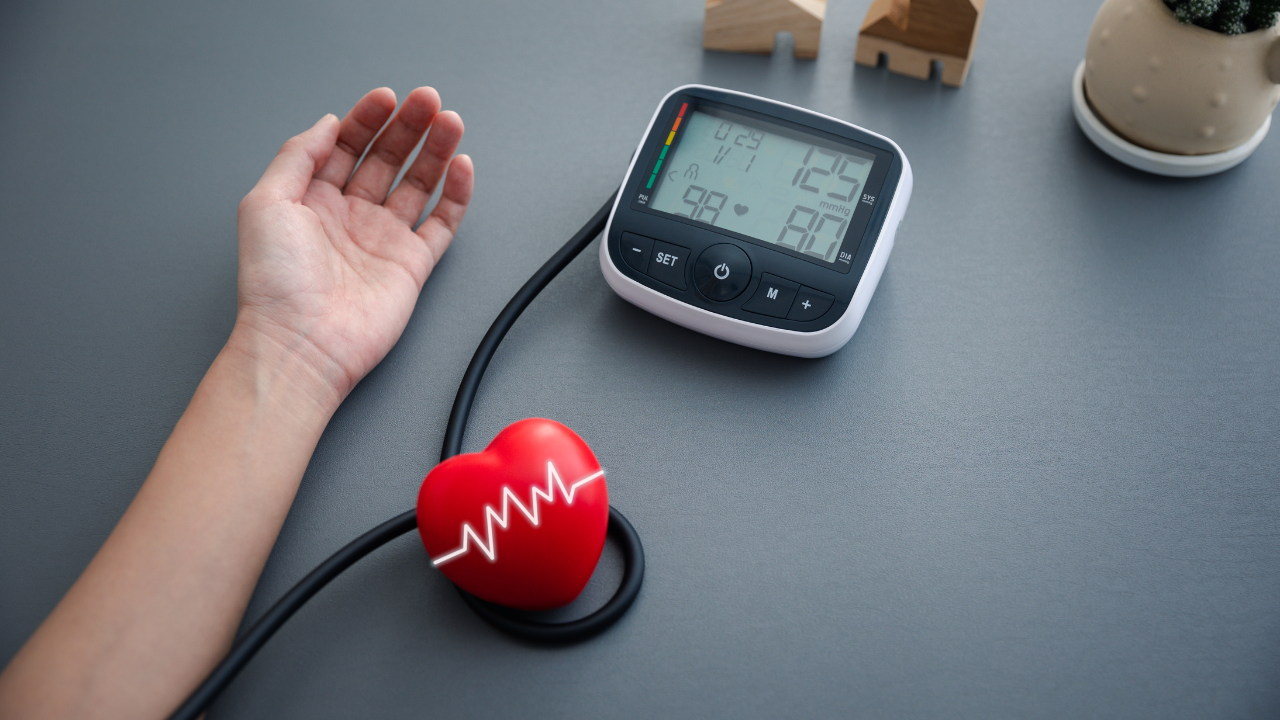
High blood pressure and high cholesterol are two common health conditions that often occur together. Known as “silent killers,” both can quietly damage your arteries and heart over time if left uncontrolled. Understanding the link between these conditions is important for managing them effectively.
The Relationship Between High Blood Pressure and Cholesterol
Blood pressure is the force exerted on artery walls as blood flows through the circulatory system. Hypertension, or high blood pressure, indicates this force is abnormally high. Similarly, cholesterol levels that are too high can lead to a buildup of plaque in the arteries.
Research shows hypertension and high cholesterol have an interconnected relationship. High blood pressure damages arteries, causing plaque buildup. The plaque narrows arteries further, increasing blood pressure. This vicious cycle continues worsening both conditions if ignored.
Additional factors like obesity, diabetes, smoking, poor diet, and inactivity can also trigger and exacerbate high cholesterol and hypertension. Genetics play a role too.
Dangers of Uncontrolled Hypertension and High Cholesterol
Uncontrolled hypertension and high cholesterol raise the risk for serious health complications including:
- Heart attack – Plaque can rupture, forming clots that block blood flow to the heart.
- Stroke – Plaque buildup can block blood supply to the brain.
- Heart failure – High blood pressure strains the heart over time.
- Aneurysm – Weakened arteries may bulge or rupture.
- Peripheral artery disease – Plaque buildup narrows arteries in the legs and arms.
The combination of high cholesterol and hypertension is especially dangerous as it accelerates arterial plaque buildup and damage to blood vessels, the heart, and other organs.
Lifestyle Changes to Improve Both Conditions
Lifestyle adjustments are the first line of treatment for mild to moderate cases of high blood pressure and cholesterol. Healthy lifestyle choices can improve both conditions without the need for medication in some individuals.
Diet – Eating a diet low in saturated fat, trans fat, sodium, and added sugars can lower cholesterol and blood pressure. Emphasize vegetables, fruits, whole grains, lean proteins, nuts, seeds, and healthy fats like olive oil. Limit processed foods, salty snacks, sugary drinks, and excessive alcohol intake.
Exercise – Regular aerobic activity and strength training helps manage weight, strengthen the heart, and lower blood pressure. Aim for at least 150 minutes of moderate exercise or 75 minutes of vigorous exercise per week.
Weight – Losing excess body weight can significantly improve cholesterol numbers and reduce blood pressure in those who are overweight or obese. Even a modest weight loss of 5-10% of your total body weight can make a difference.
Smoking – Quitting smoking improves HDL “good” cholesterol while lowering blood pressure and heart disease risk. Avoid exposure to secondhand smoke as well.
Stress – Learning to manage stress effectively through yoga, meditation, or other relaxation techniques regulates hormones that influence blood pressure.
When Medication is Needed
For more severe cases, medication may be necessary in addition to lifestyle changes to control high cholesterol and hypertension.
To lower cholesterol, statins like atorvastatin are usually the first choice. Other options include cholesterol absorption inhibitors, bile acid resins, fibrates, and niacin.
For higher blood pressure, common medications include ACE inhibitors, angiotensin II receptor blockers, calcium channel blockers, diuretics, and beta blockers. Some patients may need a combination.
Work closely with your doctor to find the most effective medication regimen for your situation. Never stop taking prescribed medications without medical guidance. Lifestyle adjustments should still be maintained along with medication therapy.
The Takeaway
High cholesterol and higher bp often coincide, fueling the progression of both conditions. Following healthy lifestyle habits can help manage mild cases. For more severe or stubborn cases unresponsive to lifestyle changes alone, medications may be prescribed.
By understanding the link between these common conditions and taking proactive steps to control them, you can significantly reduce your risk for serious cardiovascular complications. Work with your healthcare provider to monitor your cholesterol and blood pressure numbers and craft an integrated treatment plan.
See some more of my health posts here
